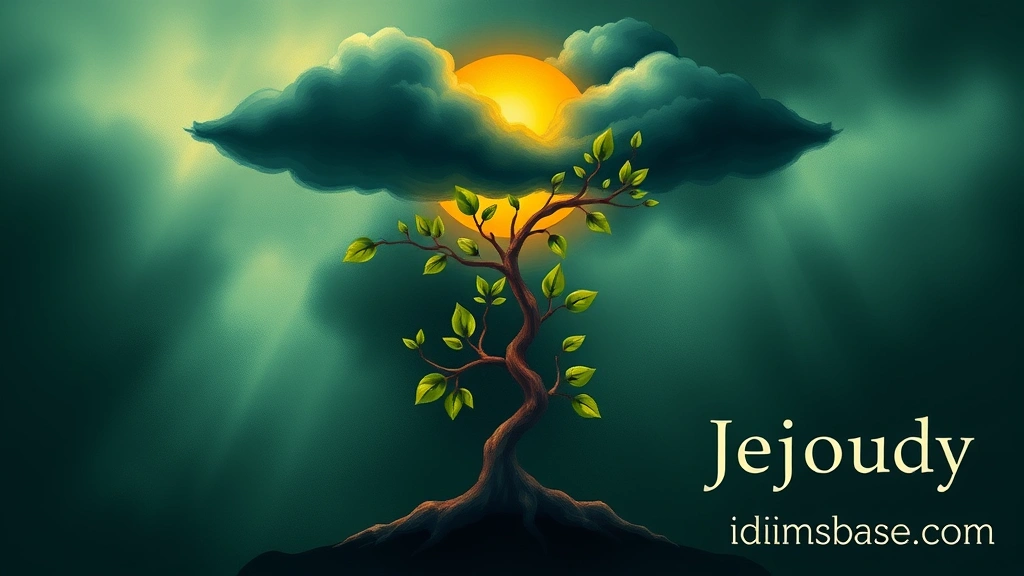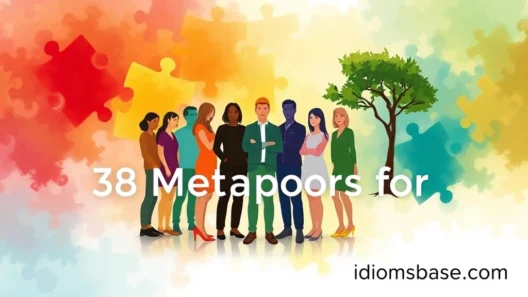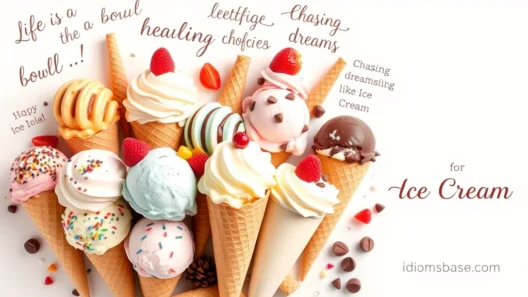Have you ever felt that nagging, uncomfortable sensation when someone else has something you truly desire? That feeling that twists in your gut, makes your heart race, and sometimes, even makes you feel a little green? Ah, yes, we're talking about jealousy! It's a universal human emotion, as complex as it is common. But how do we truly describe it? How do we put words to its many facets, its subtle nuances, and its powerful grip?
Well, that's where metaphors come in! Metaphors are like magic wands for language; they allow us to paint vivid pictures, making abstract feelings tangible and relatable. They help us understand complex emotions by comparing them to something more familiar. And when it comes to jealousy, there's a whole treasure trove of metaphors that perfectly capture its essence.
Let's dive into 38 incredible metaphors that will help you articulate the many shades of jealousy, from its fiery passion to its subtle, creeping chill. You might just find the perfect phrase to describe that tricky emotion!
The Green-Eyed Monster and Beyond: 38 Metaphors for Jealousy
Jealousy can feel like so many things. Sometimes it's a quiet whisper, other times a roaring beast. Here are some powerful ways to describe it:
Jealousy as a Destructive Force
- A gnawing worm: Imagine a tiny creature slowly, relentlessly eating away at something precious. That's how jealousy can feel, eroding trust and happiness from the inside out.
- A consuming fire: Jealousy can burn bright, hot, and out of control, leaving only ashes in its wake. It can consume relationships and peace of mind.
- A poisonous vine: This vine wraps around you, suffocating joy and growth, slowly injecting its venom into your spirit.
- A festering wound: Untreated jealousy can become a deep, painful sore that just won't heal, causing constant discomfort and infection.
- A dark cloud: It looms overhead, casting a shadow on everything, blocking out the light of happiness and positivity.
- A corrosive acid: This metaphor highlights how jealousy can slowly eat away at the foundations of a relationship, trust, and self-esteem.
- A sharp thorn: A sudden, painful jab that catches you off guard, causing immediate discomfort and a lingering prick.
- A suffocating blanket: Jealousy can feel heavy and oppressive, smothering you and making it hard to breathe or think clearly.
- A raging storm: Unpredictable, powerful, and destructive, leaving chaos and wreckage in its path.
- A heavy chain: It binds you, restricting your freedom and weighing you down, making it hard to move forward.
Jealousy as an Animal or Creature
- The green-eyed monster: This classic Shakespearean phrase perfectly encapsulates the monstrous, often irrational, and visually striking nature of jealousy.
- A hungry wolf: Always lurking, always wanting more, and ready to pounce and devour what it desires.
- A venomous snake: It strikes quickly, injecting its poison, leaving you feeling sick and betrayed.
- A snarling dog: Aggressive, territorial, and ready to snap at anyone who comes too close to what it perceives as its own.
- A lurking shadow: It follows you, always present but hard to pin down, making you feel uneasy and watched.
Jealousy as a Mental or Emotional State
- A distorted mirror: Jealousy warps your perception, making everything seem unfair or threatening, reflecting a twisted reality.
- A mental prison: It locks you in, trapping your thoughts in a cycle of suspicion, resentment, and fear.
- A blinding fog: It obscures your vision, making it impossible to see clearly or make rational decisions.
- A heavy burden: It weighs you down, making every step feel difficult and exhausting.
- A bitter pill: Hard to swallow, leaving a lingering, unpleasant taste in your mouth.
- A nagging suspicion: Always whispering in your ear, planting seeds of doubt and distrust.
- A constant itch: Irritating and persistent, demanding to be scratched but only getting worse with attention.
- A thief of joy: It sneaks in and steals away your happiness, leaving you feeling empty and resentful.
- A silent scream: The internal agony and frustration that can't be expressed outwardly.
- A tightening knot: A feeling of tension and anxiety that constricts your chest and stomach.
Jealousy as an Unpleasant Sensation

- A sour taste: An unpleasant, lingering sensation that makes you grimace.
- A cold dread: A chilling, sinking feeling that washes over you, leaving you feeling vulnerable.
- An electric shock: A sudden, jolting feeling of surprise and pain that courses through you.
- A churning stomach: The physical manifestation of anxiety and discomfort that jealousy often brings.
- A prickling sensation: Like tiny needles, a subtle but persistent irritation.
Jealousy as a Growth or Illness
- A cancerous growth: It spreads silently, consuming healthy tissue and threatening to take over completely.
- A contagious disease: It can spread from one person to another, infecting relationships and social dynamics.
- A creeping malaise: A general feeling of unease and discomfort that slowly takes hold.
- A thorny bush: Difficult to navigate, full of sharp, painful points that can hurt you if you get too close.
Miscellaneous Metaphors for Jealousy
- A ticking time bomb: It builds up, becoming more volatile with each passing moment, threatening to explode.
- A shadow in the light: Even when things are good, jealousy can linger, a dark presence that spoils the brightness.
- A deceptive mirage: It promises something, but when you get closer, you realize it's an illusion, leaving you feeling empty.
- A gilded cage: Though it might look shiny on the outside, it traps you within its confines, restricting your freedom.
Key Takeaways

Jealousy, a complex emotion, can be described in numerous powerful ways using metaphors. These comparisons help us visualize and understand its many facets, from its destructive nature to its subtle, creeping discomfort.
- Destructive Force: Metaphors like "consuming fire" or "poisonous vine" highlight how jealousy can harm relationships and inner peace.
- Animalistic Nature: "Green-eyed monster" and "hungry wolf" emphasize its primal, often irrational, and aggressive aspects.
- Mental & Emotional States: Descriptions like "mental prison" or "blinding fog" illustrate its impact on thought processes and perceptions.
- Unpleasant Sensations: "Sour taste" or "cold dread" convey the physical discomfort and unease it brings.
- Growth or Illness: "Cancerous growth" or "contagious disease" point to its insidious, spreading nature.
Using these metaphors can help you better articulate your feelings, understand others, and even recognize jealousy when it arises in yourself or those around you.
Frequently Asked Questions (FAQ)
Q1: What is the most common metaphor for jealousy?
A1: Without a doubt, "the green-eyed monster" is the most widely recognized and iconic metaphor for jealousy. It originates from Shakespeare's Othello and vividly portrays jealousy as a monstrous, consuming entity.

Q2: Why are metaphors important for describing emotions like jealousy?
A2: Metaphors are incredibly powerful because they make abstract concepts, like emotions, more concrete and relatable. They allow us to understand complex feelings by comparing them to something tangible or familiar. For jealousy, metaphors help us articulate its various intensities, its destructive potential, and its subtle nuances, making it easier to discuss and comprehend. They add depth and imagery to our language.
Q3: Can using metaphors help someone understand their own jealousy?
A3: Absolutely! When you can put a name or an image to a feeling, it becomes less overwhelming and more manageable. If you feel like jealousy is a "heavy chain," recognizing that can help you identify what's weighing you down. If it feels like a "consuming fire," you might understand the urgency of extinguishing it before it causes more damage. Metaphors provide a framework for self-reflection and can be the first step toward addressing the emotion.
Q4: Are there cultural differences in how jealousy is metaphorically expressed?
A4: Yes, while some metaphors like "green-eyed monster" have global recognition due to widespread literature, many cultures have their own unique ways of describing jealousy that reflect their specific experiences and values. For instance, some cultures might use metaphors related to specific animals or natural phenomena prevalent in their region. Exploring these cultural variations can offer fascinating insights into human emotion.
Q5: Can metaphors for jealousy be positive?
A5: Generally, metaphors for jealousy tend to highlight its negative or destructive aspects because jealousy is often an unpleasant emotion associated with insecurity, envy, and resentment. However, in some very specific contexts, a mild form of "jealousy" might be metaphorically described as a "spark" or a "wake-up call" if it motivates someone to improve themselves or fight for something they truly value, without causing harm. But overwhelmingly, the common metaphors lean towards its darker side.
Q6: How can I use these metaphors in my everyday language or writing?
A6: You can sprinkle these metaphors into your conversations to express how you or others are feeling more vividly. Instead of just saying "I'm jealous," you could say, "I feel that gnawing worm of jealousy whenever I see their success." In writing, they add richness and depth, making your descriptions more engaging and impactful. Choose the metaphor that best fits the specific nuance of the jealousy you want to convey.
Unraveling the Threads of Jealousy
Jealousy, as you've seen, is far more than a simple emotion. It's a multifaceted experience that can be described in countless powerful ways. By exploring these 38 metaphors, you've gained a deeper appreciation for the nuances of this complex feeling. You now have a rich vocabulary to articulate its many forms, whether it's a "festering wound" or a "blinding fog."
Understanding these metaphors not only enriches our language but also helps us better comprehend the human condition. So, the next time you encounter that "green-eyed monster" – in yourself or someone else – you'll have a whole new set of tools to describe and, perhaps, even begin to tame it. Which metaphor resonated most with you?






